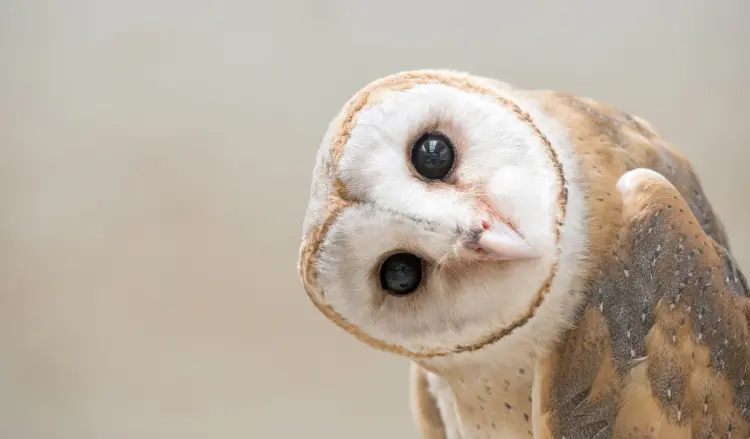Anchoring a Green Recovery in São Tomé and Príncipe
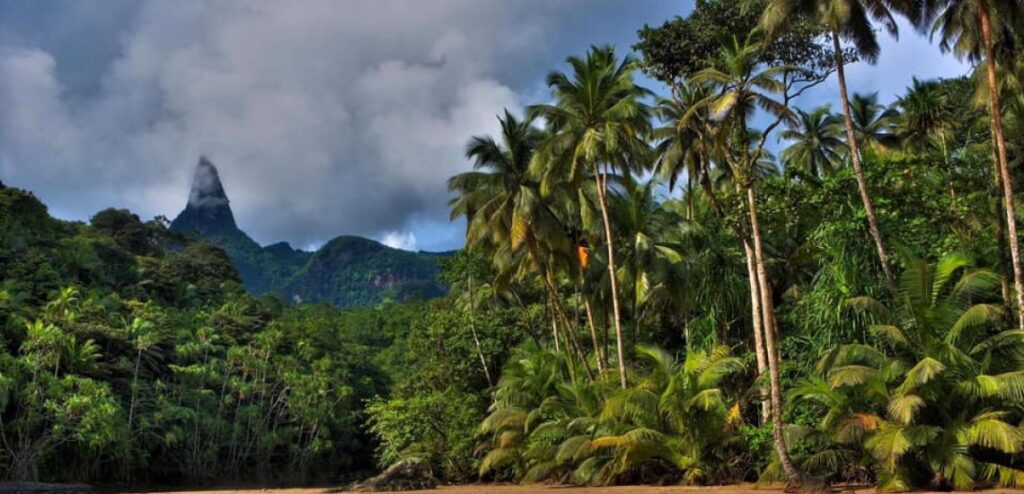
In wake of the COVID-19, BirdLife is adapting its conservation programmes in São Tomé and Príncipe islands to address the economic and social crisis caused by the pandemic, seeking to herald a green future in this island state.
By Elena Serra Sánchez
Nestled within the Gulf of Guinea is a small archipelago covered with dense equatorial forest and rich endemic biodiversity. This is the Republic of São Tomé and Príncipe, Africa’s second smallest country, with a population of about 220,000. The islands are a tropical paradise and an Eden for bird lovers, home to 27 bird species found nowhere else on the planet. Travelers swimming on its beaches and hiking in São Tomé and Príncipe’s forests take home the memory of a splendid landscape that looks more like a Jurassic Park movie than reality.
However, according to the World Bank, despite this idyllic backdrop São Tomé and Príncipe faces challenges typical of small and insular states, including a limited ability to deal with shocks or achieve a balanced budget. This is due to its remoteness, vulnerability to natural disasters and the effects of climate change, and limited availability of land and workforce. This has prevented the country from diversifying its economy and generating sustainable and inclusive growth.
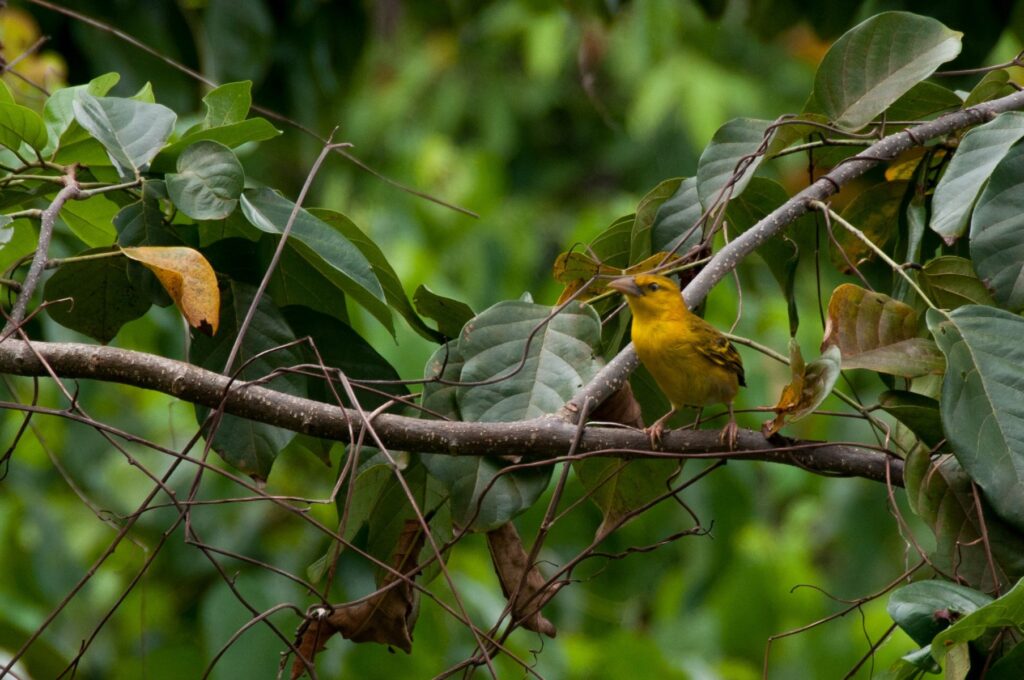
Since the 19th century, the economy of São Tomé and Príncipe has been primarily dependent on plantation agriculture, with cocoa being the main export crop, while domestic food-crop production remains insufficient to feed the population. As a result, the country imports most of its food, such as rice, cereals, oil and meat, in addition to fuel for its electricity needs. In 2018, the island exported goods worth 23 million dollars, against imports worth 161 million dollars, according the Observatory of Economic Complexity. In addition to agriculture, tourism is the country’s second largest economic sector, accounting for over 20% of employment.
With such an economy, São Tomé and Príncipe is vulnerable to sudden changes. According to the African Union, the COVID-19 pandemic, wreaking havoc globally, has greatly impacted São Tomé and Príncipe’s economy, where the vast majority of the population has to work daily to meet their basic needs. Declining economic activity in the agricultural and tourism sectors has directly affected many households.
Consequently, social groups such as eco-guides, artisans, merchants, restauranteurs and rural populations, among others, are facing an unprecedented economic and social crisis, which will inevitably lead to greater dependence on natural resources.
An urgent collaborative response
Under the lead of BirdLife International (the world’s largest nature conservation Partnership), national and international organisations have come together to address the urgent health and economic situation. These parties inculde the Portuguese NGO Oikos, the Gulf Of Guinea Biodiversity Center, the Tatô Programme, Microland association, local authorities and Sao Tomean civil society groups. In addition to helping the nation to recover from the effects of COVID-19, the response also aims to develop a plan to promote a greener, more resilient and sustainable future.
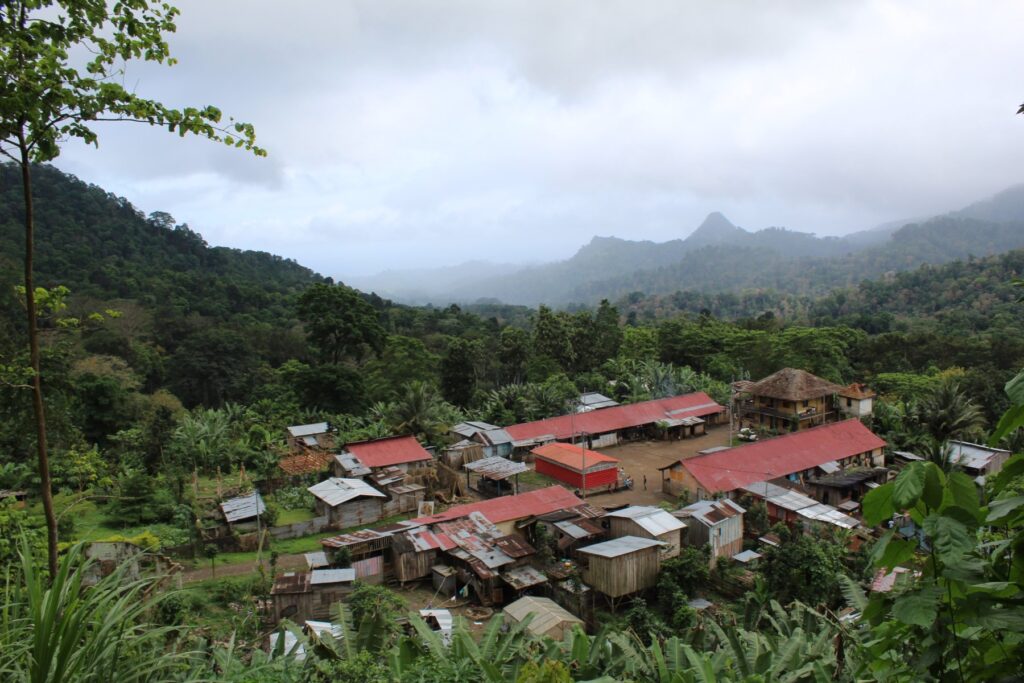
Remote rural populations living on the edge of the natural parks do not have access to state aid or information, so BirdLife is focusing efforts in these critical areas. “Eco-guides, artisans and young people in search of employment, among others, have the opportunity to reinvent their activities to overcome this crisis”, explains Jean-Baptiste Deffontaines, Head of BirdLife Projects Office in the country.
The first step in this intervention was to develop and implement a Covid-19 awareness and prevention campaign. To this end, BirdLife trained community promoters, who spread vital advice among local people on how to prevent the transmission of the disease, while highlighting the importance of maintaining healthy environment to avoid zoonotic diseases.
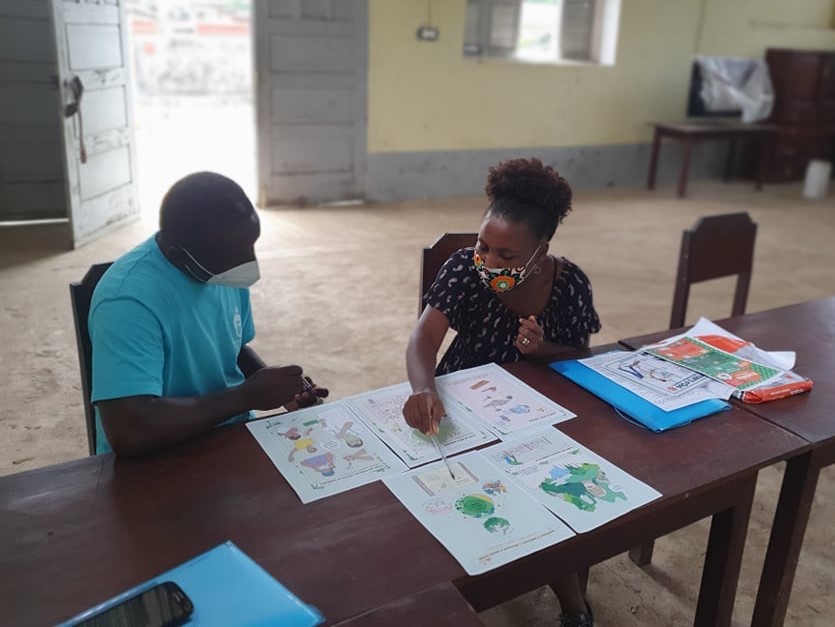
At the same time, women from the association Queremos ter um futuro com destino, an association of former sea turtle meat vendors converted a few years ago to the production of souvenirs for tourists, received funding to manufacture reusable cloth masks; including equipment, raw materials and training. BirdLife made an initial order of 3,000 reusable cloth masks, which were distributed among the population in São Tomé. “We feel very cherished and lucky because making these masks. They have not only allowed us to improve our family income in this period without tourism, but also increase production in the future, due to the two additional machines that we received,” said Maria Antónia Barros and Nilza Diogo, two women from the association. An additional 1,000 reusable cloth masks were made and distributed on Príncipe Island.
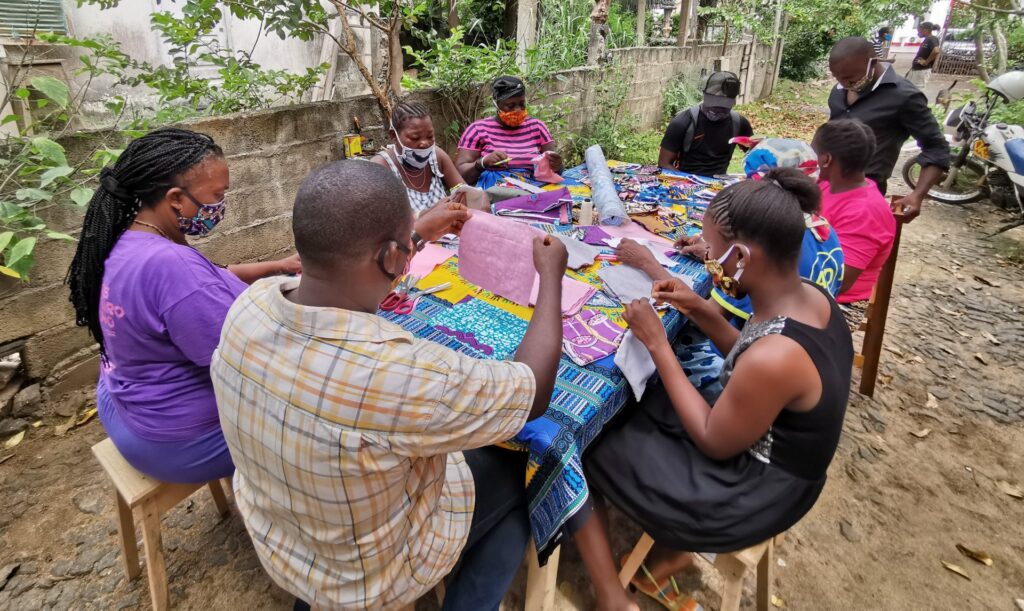
“These initiatives were very welcome to the population, and represent collaborative effort by our young people to improve living conditions in our communities,” noted Benvindo Pereira, a community promoter who took part in the Covid-19 awareness and prevention training. Recognizing these efforts, BirdLife received recognition from the government representatives of the Principe’s Regional Health Delegation.
The halt in tourism activities has provided an opportunity to carry out maintenance and cleaning work on the paths of the Obô Natural Park of São Tomé. Supported by BirdLife, eco-guides of Associação Monte Pico (AMP) are responsible for this maintenance works. “This support makes up for the stagnation of tourist services in the country. Tourism is the only means of subsistence and family income we have. Hence, this support couldn’t have come at a better time,” says Gabriel Oquiongo, an ecoguide and AMP member.
Reshaping the tourism model
In the long term, BirdLife is working with civil society organisations and the government to facilitate the professional reorientation of 15 eco-guides for the surveillance, awareness-raising and monitoring of the Obô Natural Park. This is part of a strategy responding to the significant increase in illegal logging for construction purposes. In order to strengthen the monitoring, BirdLife is supporting an initiative of the Ministry of Agriculture, in charge of forests and biodiversity, to build five surveillance posts along the main wood trafficking routes, ensuring that the construction is environmentally friendly.
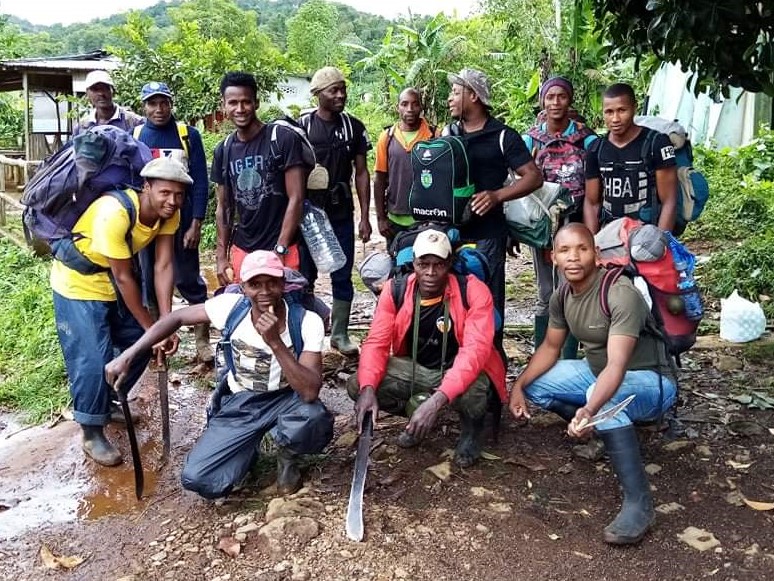
These efforts are in line with diversifying São Tomé’s economy and making it less dependent on international tourism. The Platform for Responsible and Sustainable Tourism (PRST), with BirdLife’s support, is planning on developing a national action plan to reorganize the sector and modernize the tourist offerings at the parks, focussing on their surveillance and sustainable management. According to Eugénio Neves from the PRST, “The new ecotourism model will provide global benefits in terms of biodiversity conservation and ecosystems services, as well as providing socio-economic benefits to communities in the buffer zone, through co-management and sustainable production of raw materials.”
In addition, BirdLife is working towards the development of a sustainable finance plan for protected areas and biodiversity. “Within this framework, tourism will certainly no longer be given the same priority,” adds Jean-Baptiste.
In the context of the Covid-19 crisis, BirdLife has reinforced its São Tomé and Príncipe strategy. Over the next decade it aims to extend its impact to wider areas, improving livelihoods, creating job stability and promoting a sustainable economy based on climate change-resilient ecosystem services. With this strategy, BirdLife is leading the way in championing a resilient green future model for biodiversity conservation.
The Birdlife International Africa Secretariatl has been active in São Tomé and Príncipe for more than 10 years, working with park management authorities, ministries and local communities on research, conservation of endangered birds and local empowerment. Since 2017, through the EU-funded regional ECOFAC6 programme, BirdLife has secured a grant for the protection of the Natural Parks of the islands of São Tomé and Príncipe. Coordinating a consortium of NGOs, including Oikos, SPEA (BirdLife in Portugal) and RSPB (BirdLife in England), the project addresses the structural challenges of sustainable forest conservation and is a springboard for the definition of the frameworks necessary for the effective management of natural parks and the broader landscapes. BirdLife would like to thank the technical and financial partners involved in the implementation of the programme, including the CE3C – Centre for Ecology, Evolution and Environmental Changes (University of Lisbon), the Rainforest Trust and the Waterloo Foundation. You can follow the BirdLife São Tomé and Príncipe initiative through the Obô Ôvyô facebook page.
Latest news from Africa
Stay up to date
Sign up to receive the latest bird conservation news. You’ll also receive updates about our projects, science and other ways to get involved including fundraising.
Thank you for your support, we are committed to protecting your personal information and privacy. For more information on how we use your data, please see our Privacy Policy. You can unsubscribe from emails at any time by using the link in the footer of any email from us.
